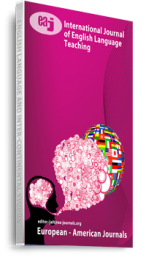This study explores the role of student-led classrooms in developing critical thinking, sociolinguistic awareness, and collaborative skills among pre-service English teachers in Kuwait. Employing a qualitative case study design, it examines the application of active learning in a sociolinguistic educational context. The results indicate that this approach enhances critical engagement with sociolinguistic issues, fosters analytical abilities, and promotes collaboration through peer feedback. However, challenges such as resistance to new methodologies, varying language proficiency, and institutional constraints underscore the need for structured support and alignment with institutional objectives. With the necessary adjustments in place to support teachers and students alike, the findings highlight the transformative potential of active learning. With consideration of the challenges highlighted, as well as room for flexibility to respond to issues arising throughout the course, this paper proposes strategies to tailor the active learning model to the specificity of Kuwait’s educational environment. Furthermore, proposing that future studies should examine its long-term effects and explore cross-cultural and digital adaptations.
Keywords: Critical thinking, Sociolinguistics, Student-led classrooms, Teacher Education

